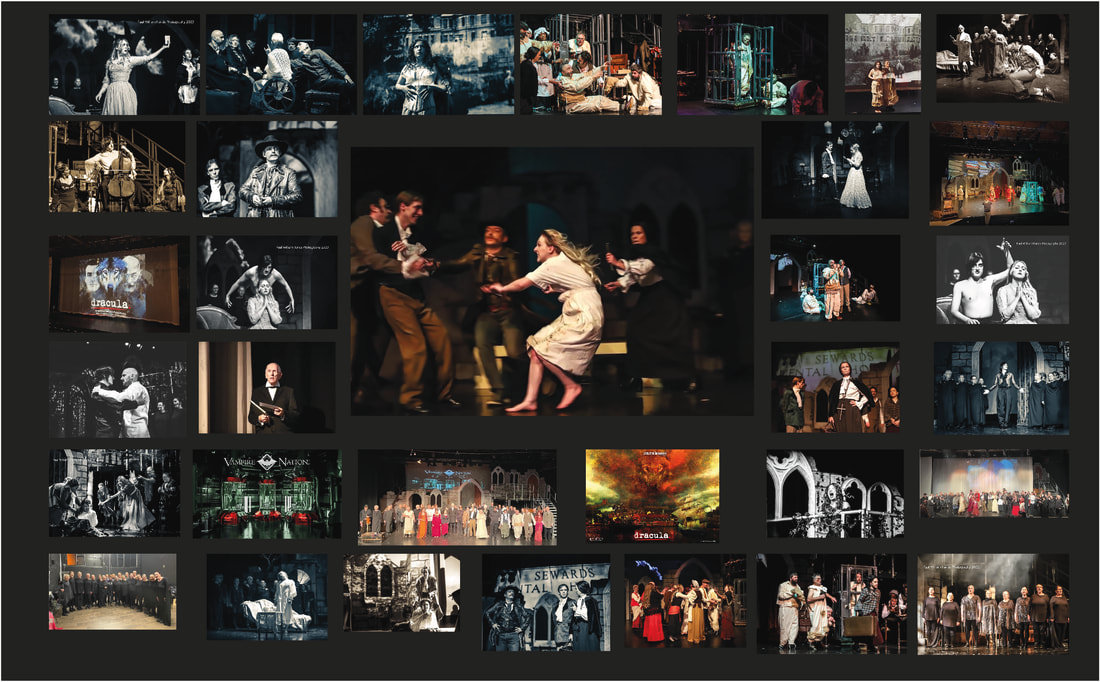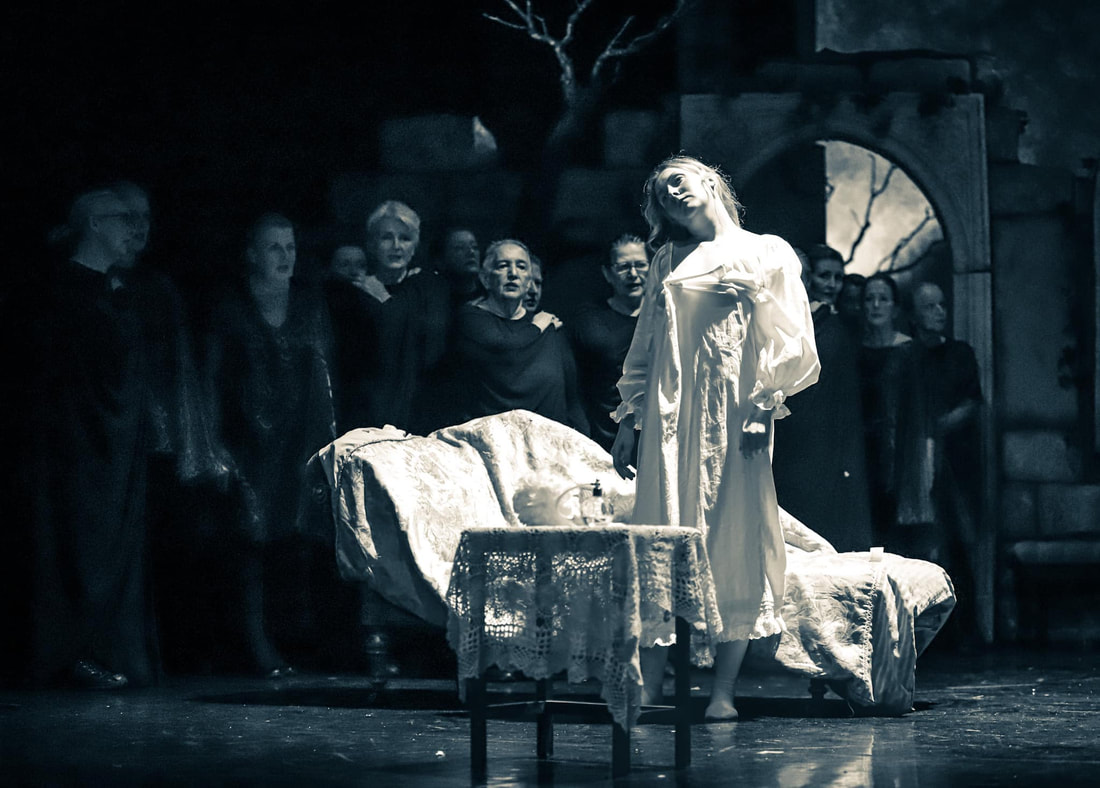Carabosse Theatre Company
Menu


Next Production
Medea by Euripides
19th Oct to the 23rd Oct 2024
New adaptation by
Carabosse Theatre Company
Pictures
---------------------------------------
Dracula
Legends about vampires or blood sucking monsters have existed widely and for centuries across the world but Dracula somehow captured the public imagination. First published 1897 it has never been out of print since. It has become part of our folklore, our collective mythology. Just about everyone knows, or thinks they know, the story of Dracula. Few people now, though, say that they have read it, instead getting their knowledge from films and other media based on the book.
It cannot claim to be a well-written book. There is little character development and there are issues with continuity, but it was generally admired on publication, although some considered it too violent and “not for those who are not strong”.
Possibly its weaknesses are also its strengths allowing the power of the story to be central, (the dead rise from the grave to suck blood from the living and create new vampires), for the characters to become archetypical and for readers to see a plethora of themes and reflections of their own fears.
Dracula was written at a time of extensive social and technological changes which are reflected in the story but, perhaps, the factor in Dracula which most captured the imagination is the transformation of the myth into one of sexual seduction of innocent young women into a world of voluptuous perversion. It was a time when gender roles were being challenged with new technology allowing the possibility of female emancipation and some women looking for greater sexual freedom. Mina and Lucy can be seen as the two sides of the “New Women”, Mina being ambitious and embracing the new technology while Lucy expresses a desire for sexual freedom: “why cannot a woman marry three men if all desire her?”
There was little academic notice until the 1970s, but since then there has been a proliferation of interpretations and reflections on Dracula. It has been interpreted as not just a gripping horror story but possibly reflecting anxieties about class conflict, female emancipation, foreignness / alien invasion, anti-Semitism, sexual perversion, homosexuality, sexual disease, fear of regression to the primitive, the past versus the present / future. It has even been read as a prefigurement of recent epidemics such as Aids, Ebola and Covid.
Dracula
Legends about vampires or blood sucking monsters have existed widely and for centuries across the world but Dracula somehow captured the public imagination. First published 1897 it has never been out of print since. It has become part of our folklore, our collective mythology. Just about everyone knows, or thinks they know, the story of Dracula. Few people now, though, say that they have read it, instead getting their knowledge from films and other media based on the book.
It cannot claim to be a well-written book. There is little character development and there are issues with continuity, but it was generally admired on publication, although some considered it too violent and “not for those who are not strong”.
Possibly its weaknesses are also its strengths allowing the power of the story to be central, (the dead rise from the grave to suck blood from the living and create new vampires), for the characters to become archetypical and for readers to see a plethora of themes and reflections of their own fears.
Dracula was written at a time of extensive social and technological changes which are reflected in the story but, perhaps, the factor in Dracula which most captured the imagination is the transformation of the myth into one of sexual seduction of innocent young women into a world of voluptuous perversion. It was a time when gender roles were being challenged with new technology allowing the possibility of female emancipation and some women looking for greater sexual freedom. Mina and Lucy can be seen as the two sides of the “New Women”, Mina being ambitious and embracing the new technology while Lucy expresses a desire for sexual freedom: “why cannot a woman marry three men if all desire her?”
There was little academic notice until the 1970s, but since then there has been a proliferation of interpretations and reflections on Dracula. It has been interpreted as not just a gripping horror story but possibly reflecting anxieties about class conflict, female emancipation, foreignness / alien invasion, anti-Semitism, sexual perversion, homosexuality, sexual disease, fear of regression to the primitive, the past versus the present / future. It has even been read as a prefigurement of recent epidemics such as Aids, Ebola and Covid.
STOP PRESS. Carabosse Theatre Company receives significant funding from Arts Council England.
Carabosse Theatre Company is delighted to announce that we have been awarded a substantial grant from Arts Council England. A vital recognition of our commitment to artistic excellence and community engagement. This funding will enable us to further enrich our artistic endeavours and expand our impact within the local community. Full press release available here.
Tickets Now on sale on Ticketsource
Proudly powered by Weebly

